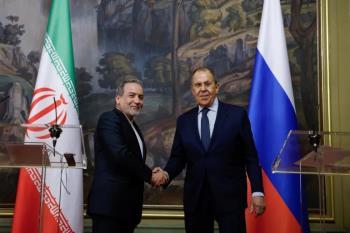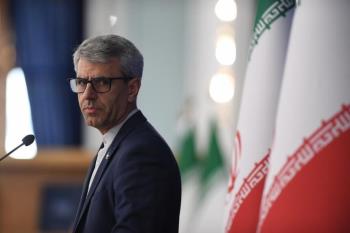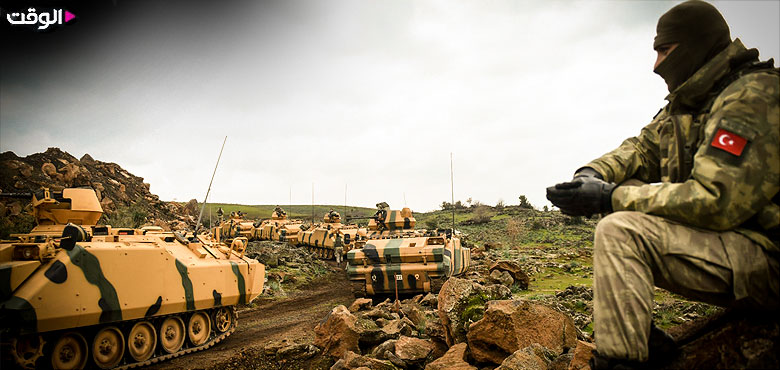Alwaght- While the US remains undecided about a plan for military withdrawal from Syria and a large number of the opponents of the idea are leading a debate against the small number of its supporters, the major actors in Syria crisis have begun their moves to influence the new order governing the war-hit country’s equations. Meanwhile, the northern parts of the country, held by the Syrian Kurds, are taking a center stage in such attention.
When it comes to Syria’s north, one side of the equation is Turkey which welcomes the American forces exit and finds it preparing the conditions for a rejuvenated military campaign against the Kurds under the excuse of fighting terrorism.
But Ankara is faced with a high barrier of opponents in its plans in the neighboring Syria. On the one side is the Syrian government and its staunch backers Iran and Russia which are for the full Syrian integrity as a sovereign state. On the other side stand the US and its Arab allies who are worried about Turkish entrenchment in Syria and the region that endangers their foothold in the Syrian future.
So far, the American-Turkish talks to set a mechanism, likely a safe zone between Turkey and Syria, to prevent confrontation between the Syrian Kurds and the Turkish military after the US pullout have failed. Meanwhile, Ahmed Jarba, the former head of the Syrian opposition body, has recently presented a proposal aimed at untying the complexity that disrupts the US-Turkey project of a safe zone in northern Syria.
The proposal suggests a safe zone between Jarabulus in the north of Aleppo province and Faysh Khabour on the eastern Syrian borders with Iraq. The area measures 500 kilometers long and 28 to 32 kilometers deep into the Syrian territories. Also, 7,000 Syrian Kurdish militants, mainly of People’s Protection Units (YPG), and the American forces and their military bases will be removed from the zone. The area will be secured by some 8,000 to 12,000 special Arab and Syrian Kurdish forces trained in Iraq’s Kurdistan region. The proposition in addition to curbing Ankara’s assaults against the Kurds seems to eye preventing Turkey from leaning to work with the Syrian government and the two brokers of Astana and Sochi peace initiatives Russia and Iran.
Certainly, the central point of the plan is replacement of the YPG with the militias tied to the Kurdish National Council and taking back the American-provided weapons from the YPG, once seen as the infantry of the US in Syria. The interesting point is the role f the Iraqi Kurdistan Democratic Party (KDP) led by Masoud Barzani who over the past years, despite his controversial measures including the referendum and struggle with the central government for Kirkuk or the Turkish airstrikes on the rural areas of the Iraqi Kurdish region, maintained cooperative relations with the Kurdish President Recep Tayyip Erdogan.
Turkey argues that the Democratic Union Party (PYD) and its military wing are an extension of the Kurdistan Workers Party (PKK), an archenemy to Ankara that has been fighting Turkish governments for four decades. If the KNC, founded by Barzani in October 2011, becomes in control in Syria’s north, a part of the Turkish leaders’ worries about the future dangers will be eased. Ankara will also no longer have concerns about the YPG arms falling in the hands of the PKK.
Earlier this week, Nasr al-Hariri, the leader of the Syrian opposition body, visited the Iraqi Kurdish region and met with Barzani, asking him to play a greater role in the Syrian Kurdish developments. On the other side, Kamran Haju, the head of foreign relations committee at the KNC, said “world-level” efforts were underway to take the Kurdish-controlled areas out of the PYD hands and deliver them to the KNC and other local committees. He continued that the move was meant to satisfy Turkey and attracted the Washington support.
But there should not be much optimism about the implementation of the roadmap. Apparently, an important part of the drive to the design comes from the infighting among Syrian Kurdish groups who are wide in range and each of them, depending on its ideology and mindset, proposes a way to run the Kurdish areas.
It is noteworthy that the differences between the KNC and the PYD led to the early collapse of an agreement to form the Supreme Kurdish Committee comprised of the two parties. The meeting was held in July 2012 in Erbil with the aim to end the intra-Kurdish division, share the power, and form a national Kurdish defense force to protect the Syrian Kurdish areas.
The cleavage, however, later struck the KNC. On 12-15 February 2016 at a conference in Qamishli in Hasakah province, five Syrian Kurdish parties formed a new alliance. In response, the KNC expelled four of them for their links to the PYD.
Despite the fact that the Turkish threat to the PYD and YPG is serious, the two do not find the solution in surrender. Rather, they seek the way in dialogue and reconciliation with the central government with Russian backing. Their green light for the army forces’ entry to Manbij in late December last year bore sign to their openness to an alliance with the government.
But the challenge of the Jarba proposal for Turkey is that while the Kurds want to take control of the safe zone, Ankara wants it under its watch. Ibrahim Kalin, the Turkish presidential spokesman, has recently rejected an accord between the US and Turkey over who controls the safe zone and said the Turkish forces will preferably be in control.
It appears that Turkey prefers Syria’s northern areas to be controlled by Damascus rather than by the YPG. Last week, the Russian President Vladimir Putin and his Turkish counterpart highlighted the need for a return to Adana pact, a 1998 agreement between Turkey and Syria according to which Damascus has agreed to expel the Kurdish militias hostile to Turkey from its northern areas. Still, we should wait for the Turkey talks with both Russia and the US to see the outcome.



























